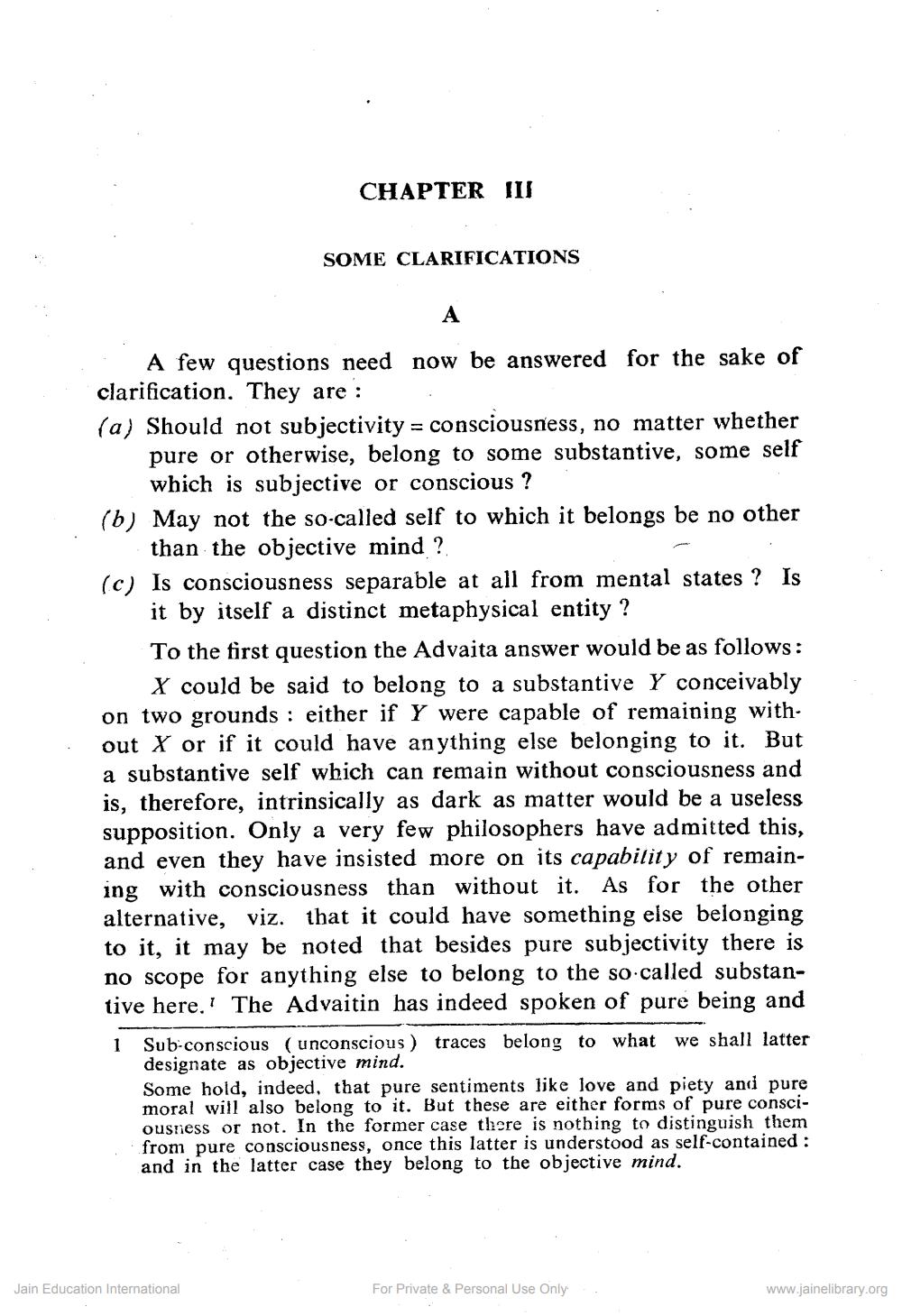________________
CHAPTER III
SOME CLARIFICATIONS
Α
A few questions need now be answered for the sake of clarification. They are : (a) Should not subjectivity = consciousness, no matter whether
pure or otherwise, belong to some substantive, some self
which is subjective or conscious ? (b) May not the so-called self to which it belongs be no other
than the objective mind ? (c) Is consciousness separable at all from mental states ? Is
it by itself a distinct metaphysical entity ? To the first question the Advaita answer would be as follows:
X could be said to belong to a substantive Y conceivably on two grounds : either if Y were capable of remaining with. out X or if it could have anything else belonging to it. But a substantive self which can remain without consciousness and is, therefore, intrinsically as dark as matter would be a useless supposition. Only a very few philosophers have admitted this, and even they have insisted more on its capability of remaining with consciousness than without it. As for the other alternative, viz. that it could have something else belonging to it, it may be noted that besides pure subjectivity there is no scope for anything else to belong to the so-called substantive here.' The Advaitin has indeed spoken of pure being and
1 Sub-conscious (unconscious ) traces belong to what we shall latter
designate as objective mind. Some hold, indeed, that pure sentiments like love and piety andi pure moral will also belong to it. But these are either forms of pure conscioustiess or not. In the former case there is nothing to distinguish them from pure consciousness, once this latter is understood as self-contained : and in the latter case they belong to the objective mind.
fromess, or not. In ong to it. Buttiments like
Jain Education International
For Private & Personal Use Only
www.jainelibrary.org




